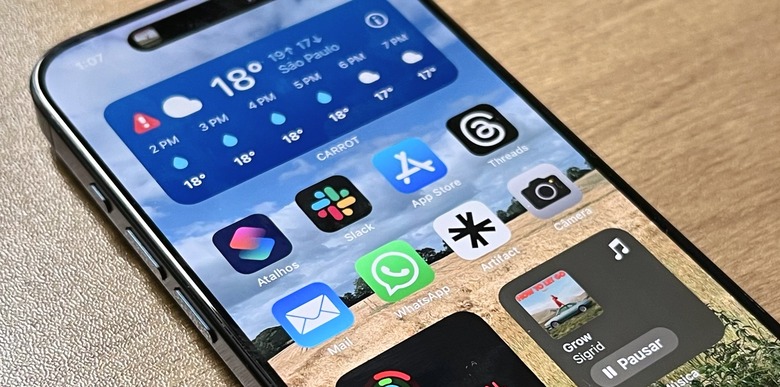WhatsApp Will Stop Working Next Year If You Have One Of These iPhone Models
WhatsApp is the most popular messaging app in the world. But even with its wide reach, the app can't always support every different device out there. The company regularly updates its help center to let users know which devices it still supports. Now, the messaging app has announced (via WABetaInfo) that some older iPhone models that are currently supported won't be able to use WhatsApp as of May 2025.
Currently, WhatsApp requires iOS 12 or later. But it will soon change the list of supported devices to iPhone models running iOS 15.1 or newer. With that, even if you're running an older WhatsApp TestFlight build, you won't be able to use the messaging platform unless your device can run iOS 15.1 or later.
While device compatibility changes can be tricky, these updates help make the app safer while ensuring the majority of users will have access to the latest features. That being said, these are the iPhone models that will lose WhatsApp support by next May.
- iPhone 5s
- iPhone 6
- iPhone 6 Plus
These devices currently run iOS 12.5.7. What's impressive is that WhatsApp has been supported by iPhone models released over 10 years ago. WABetaInfo says that the number of iPhone users with these models has likely dramatically decreased, which is why the platform decided to end support for them.
If you think about iPhone models that Apple still updates, you'll realize that only the iPhone XR, iPhone XS, and newer get the latest versions. That said, even if you have an iPhone 6s, you'll likely have at least another year of WhatsApp updates.
After May 5, 2024, you'll have to update your iPhone to at least iOS 15.1 to use WhatsApp. The same is worth it for WhatsApp Business.
Wrap up
The process is relatively easy if you are one of the select few people who need to upgrade to keep using WhatsApp. As long as you're moving from iPhone to iPhone or Android to Android, you can easily transfer your chat history. WhatsApp published an entire page detailing the process on its website. If you're moving from iOS to Android, the company just introduced a new tool to make this possible. We wrote about it just last week. Unfortunately, it's not possible to move from Android to iOS quite yet, but this feature is in the works as well.
